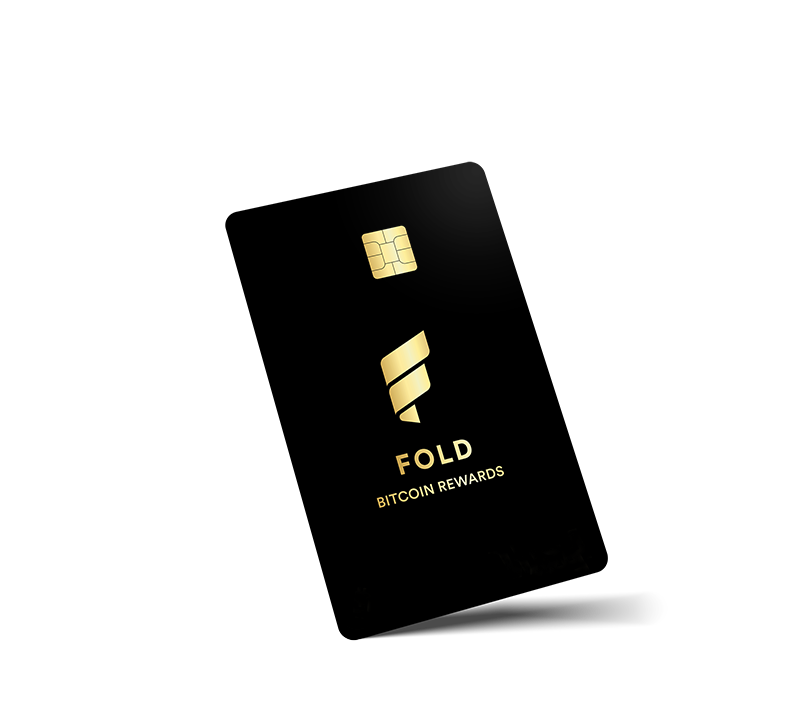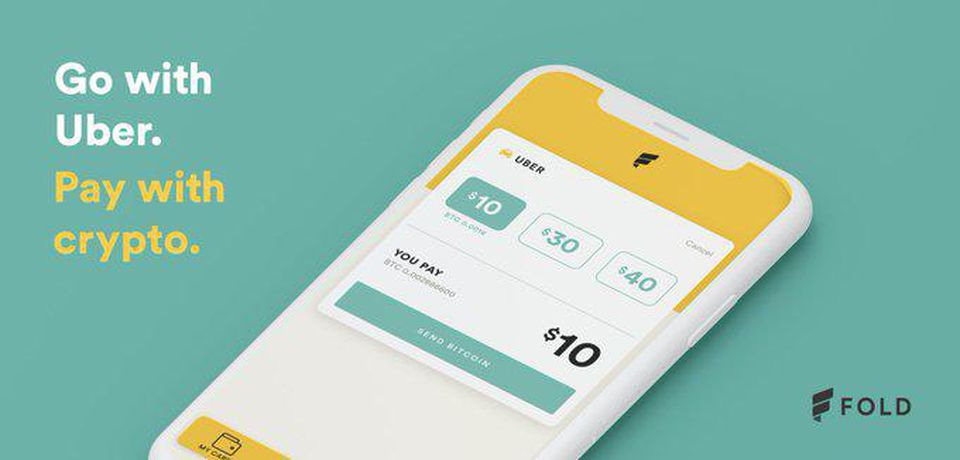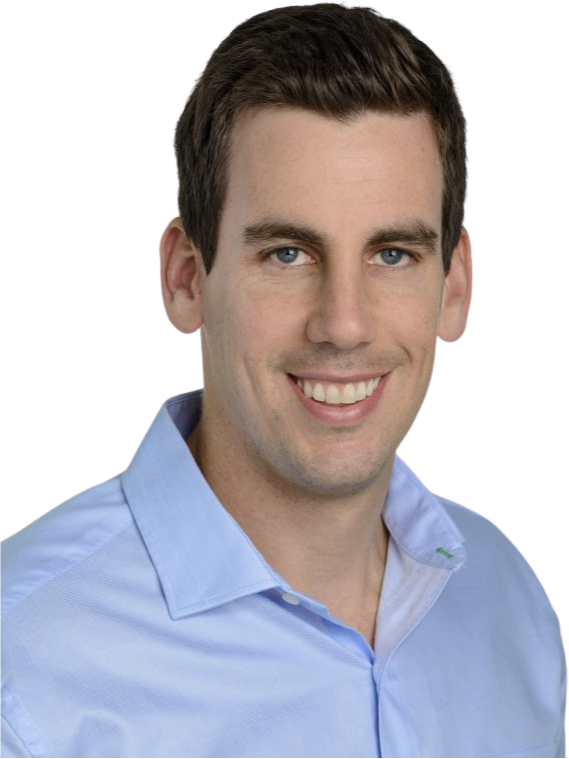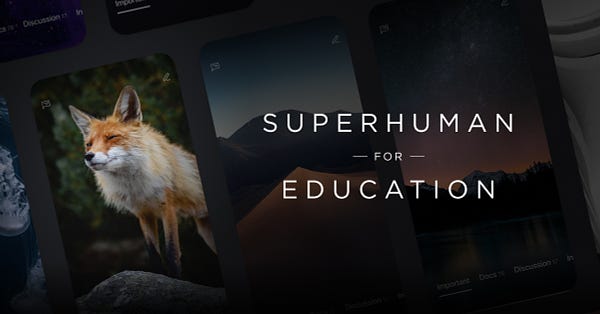Hey there! Welcome to my email newsletter. My name is Leo Luo, a student entrepreneur at the University of Michigan. I write about founder stories, trends, fundraising, and unique behaviors in the consumer startup space.
Just started using Twitter recently - follow me @_leoluo
↺ What you might’ve missed in the last four weeks
09/20 - Story of Amie (Joyful productivity app) + David Tisch (GP @ BoxGroup)
09/13 - Story of Artifact (personal podcast) + 3 interesting Twitter threads
09/06 - Story of Hyprr (decentralized social media) + Latif Peracha (GP @ M13)
08/30 - Story of Muze (creative messaging platform) + Klima (carbon offsetting app)
🍽 Today’s menu
Startup story - Story of Fold (Get bitcoin when you shop)
Investor POV (Digital Health) - Jonathan Friedman (Partner at LionBird)
Twitter threads - 2 interesting twitter threads
What I’ve been reading - 5 articles about startups and investing
Who’s ballin’ this week - 7 new fundraising/developments in B2C space
Jobs - 11 full-time jobs and internship postings
VC Mentorship - Sign up to become a mentor/mentee (Vice Ventures)
🔥 Startup Story
Story of Fold (Get bitcoin when you shop)

(Image credit: Fold)
Fold is on a mission to make bitcoin a mainstream asset. Their current product allows consumers to earn bitcoin when shopping online. It has raised over $3.3M from VCs like Slow Ventures and Craft Ventures. It was really fun learning more about the story of Fold from the Co-Founder and CEO, Will Reeves.
🌱 Genesis
Will has been obsessed with bitcoin for a long time - “I think Bitcoin is one of the most interesting experiments happening on the planet right now. The idea of a store of value that exists beyond sovereign politics and is open to everyone is fascinating, an experiment that is worth seeing to the end.”
⛓ Personal connection with bitcoin
Will had a few interesting interactions with Bitcoin that shaped his perspective for this asset class:
(Protection from economic turmoil) While living in Argentina, he witnessed his friends convert their life savings from Argentine pesos into bitcoin, effectively protecting their wealth from an impending economic downturn.
(Global money) Will had experience with migrant workers who sent bitcoin back home as remittances in a way that avoided high fees.
(Privacy / censorship-resistant) Having been involved in Occupy Wall Street, he witnessed donations being taken in bitcoin because banks had shut down all accounts affiliated with the movement.
🚗 Fold’s product journey
Will’s vision includes introducing bitcoin to millions of households around the world. It is an ongoing journey, and they have done many experiments to get to this point:
Experiment one: The first insight Will and his team had was that even though a lot of people had bitcoin, they couldn’t really do anything with it besides transferring it to others in the bitcoin space. Thus, their initial MVP was a product that allowed consumers to spend bitcoin at Starbucks to buy coffee.
Key learning #1: Bitcoin is a slow means of payment (about 10 mins to process a payment). People often held up the line while waiting for the bitcoin payment to process.
Key learning #2: Bitcoin is also volatile. Why would people spend it if they could just as well watch the value appreciate over time?
Key learning #3: Bitcoin transactions trigger capital gains tax (not ideal for just purchasing coffee).

Experiment two: They then built a full bitcoin wallet to make it super easy to hold, send, and spend bitcoin. The product had great UX but it struggled it pick up traction.
Key learnings: The lack of traction was not due to the lack of incentive to use or hold bitcoin. The real problem for most people was about acquiring bitcoin.
Current experiment: They’ve currently decided to tackle that problem by offering a bitcoin rewards program. Their latest product launch was accompanied by an explosion in user activity and engagement. It happened really quickly and it was clear that they had reached an initial product-market fit.
💸 Current business model
Fold has three revenue streams that are very similar to most other financial institutions:
(Revenue share from networks) Fold gets a percentage of fees from networks such as Visa every time a consumer spends with a Fold debit card.
(Interest) Fold also makes money on interests earned from bitcoins under management.
(Subscription) Fold has recurring revenue from consumers who pay an annual subscription fee to get special services and access.
🚀 Building a moat
Will - “Just offering bitcoin rewards is not a differentiator. It is hard to create a moat around deal aggregator business. Our goal is to create a whole banking infrastructure. People can deposit with us, spend money with us while having tons of fun. Our experience is a game - we have a spin wheel that you can spin every day, you get variable rewards and random awards.”
“Our differentiator is to create a sticky product that delivers appreciating value to users the more they use it.”
🤔 Challenges
Partnership - Similar to the challenge that David from Hyprr told me a few weeks ago (check out Hyprr’s story here), Will and his team have faced a huge challenge in convincing merchants to work with a bitcoin company.
“When you are a bitcoin company, you need to be the most buttoned-up in the room and you have to prove you are better than all of the other non-bitcoin companies. We have to convince banks and Visa to all get involved, ” Will explained.
Execution - Fold has been able to achieve some product-market fit in the market (80k+ waitlist); however, it is easy to get distracted and go in a different direction. Fold still needs to stay focused on its customers and not try to do too much.
Check out Fold here!
🔥 Investor POV (Digital Health)
Jonathan Friedman (Partner at LionBird)

(Image credit: Jonathan Friedman)
Jonathan is a partner at LionBird, a seed-stage VC based in Tel Aviv and Chicago. Prior to VC, Jonathan pursued entrepreneurship in the energy sector. Currently, he is focusing on digital health startups and has invested in companies like Tytocare, Theranica, and Protenus. I learned so much from him last summer while interning at Lionbird. It was a pleasure to catch up with him and hear more about his thoughts on the B2C health space.
🔥 Digital health trends that excite Jonathan
Decentralization of healthcare delivery from hospitals to communities or homes
“Aging in place is a trend that has been talked about for a while but now it’s becoming a reality. There are the right technologies and business models to tackle this problem. COVID has also accelerated this trend.
One example is our portfolio company, Assured Allies. They partner with long term care insurance companies and offer a risk stratification service to analyze the aging trajectory of different sub-segments within their patient population and recommend the right intervention to keep them aging in place. Their incentive is aligned with the insurers.”
Alternative digital therapeutic solutions commercialize through traditional healthcare route
“On one hand, Pharma companies are having a tough time getting the drugs to market; on the other hand, you have all the non-drug solutions that existed but were never accepted to the mainstream. There is a trend of replacing drugs with alternative solutions that can be commercialized through the traditional healthcare route.
Brightplate, for example, offers a 12-week program to insurers and employers where they deliver plant-based meals and healthy habits coaching for free to the consumer and then they get paid by the insurer for measurable declines in blood pressure.”
💬 Advice for early-stage digital health founder
Have a dual vision of both finding ways to own the patients and to monetize from insurances through B2B offerings.
“One example is our portfolio company Ovia, a leading fertility app. They take a lot of data from the users to understand their ovulation cycle and can help users to get pregnant 3 times faster than the national average. They have over 2 million MAU that are obsessively logging into the app. Once they get pregnant, they also use it to monitor their pregnancy.
The way they monetize is through insurers and self-insured employers since they know if the person is getting pregnant in the next 9 months due to pregnancy complications, there is a high chance they will cause the health system a lot of money. Ovia helps to reduce risks for the pregnant and minimize cost for the system while providing a great consumer service.”
💡 Favorite mental models for investing
Why am I so lucky model
“This is a framework from Howard Marks. He said that efficiency is what lawyers call rebuttable presumption, something presumed to be true until someone proves it otherwise.
You need to be intellectually honest with yourself and ask this question when you come across a deal that appears so great in proportion to the risk. One reason could be that you are overlooking the hidden risks. Another is that you are doing something that others can’t and won’t do due to certain constraints (e.g. Vice Ventures).”
🤔 What is one contrarian view you have?
“For most people, it is better to not try to be contrarian but focus on competitive advantage. Focus on obvious but hard. It only matters when you are right.”
📚 Books that have impacted Jonathan the most
“What I like is that the book very precisely defined the variables that decide the rate of adoptions such as trialability and observability of the innovation. It is easy to apply the framework to startup investing.”
“My biggest takeaway is that you can beat most people in Pokers by learning and mastering the best practice (e.g. only play top ten hands of poker consistently to gain trust and then once in a while stir the pot). This principle extends beyond Pokers as well.”
💬 Twitter threads
Two formulas for mega success
Superhuman is offering student plan
👨💻 What I’ve been reading
Deep dive on Roam
The Other Equation: People/Team Fit (written by the CEO of houseparty)
Braden Urquhart - CEO of RecTimes, growing a highly profitable & remote micro-niche SaaS
Good vs. Great Companies: The Unseen Truths of Breakout Success (NFX)
Writing copy: How to pick an enemy? (Elizabeth Yin, GP at Hustle Fund)
🏀 Who is ballin' this week
Mark Cuban, Marc Benioff, Robert Downey Jr., Gwyneth Paltrow and Uber CEO Dara Khosrowshahi are investing in toilet paper
Zoom’s earliest investors are betting millions on a better Zoom for schools
Endel raises $5M to create personalized ‘sound environments’ that improve productivity and sleep
Mobley is now Conjure; raises $9M seed for furniture rental platform
Event discovery network IRL raises $16M Series B after refocusing on virtual events
Papa secures $18M Series B to connect older adults with companions
‘AI-powered’ fitness app Freeletics scores $25M Series B
😍 Jobs & Internships
Full-time -
Apply - Shaan Puri - Investor (Remote)
Apply - JPMorgan Chase - Impact Investing Associate (NYC)
Apply - Blackstone - Strategic Capital Associate (NYC)
Apply - Assembled Brands - Product Manager (LA)
Apply - Loeb.nyc - Venture Analyst (NYC)
Apply - Mirror - Logistic Analyst (NYC)
Internships -
Apply - Mark Rosner - Angel Investing Intern (Remote)
Apply - Dropbox - Summer Business Analyst Intern (SF)
Apply - Google - Summer APM Intern (Mountain View)
Apply - DRW Ventures - Investment Analyst Intern (Chicago)
Apply - Commonfund - Summer Private Capital Investments Intern (NYC)
👥 Mentorship program
A note from my buddy from Vice Ventures - “Vice ventures just launched the Young VC Mentorship Program with the goal to raise the next generation of young investors. The program will last 6 months - participation will include a 30-minute intro call and monthly 15-20 minute check-ins where mentees can learn about their mentor's career and journey as well as receive guidance. Here are the mentee and mentor forms.”





